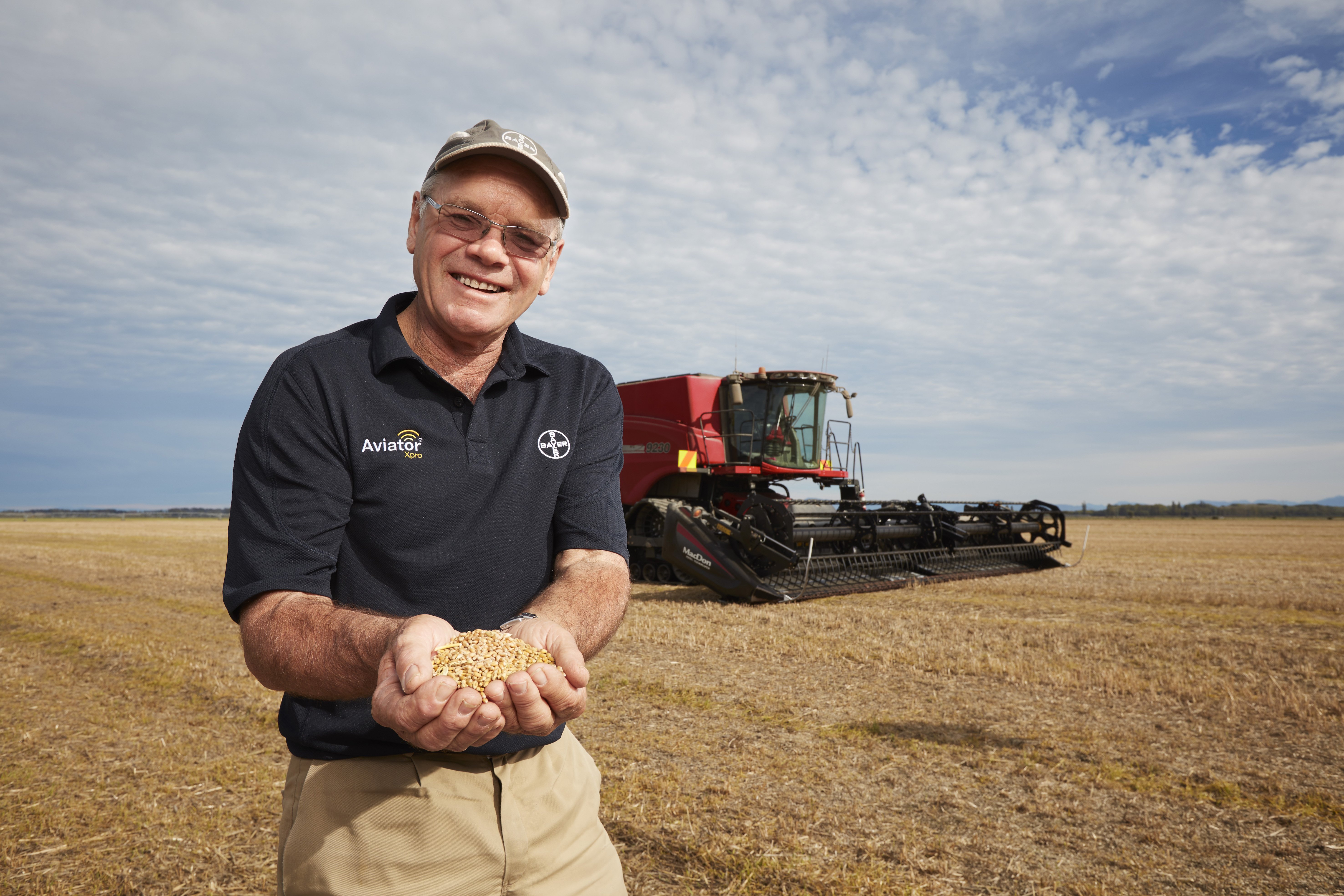
The Wakanui couple have entered the Guinness Book of World Records with their yield of 16.791 tonnes per hectare, beating the previous record of 16.519 tonnes held for two years by UK farmer Rod Smith.
On average, irrigated wheat yields in New Zealand are around 12 tonnes per hectare.
The result was a combination of many things, Mr Watson said.
"Weather played a big part. It was never excessively hot, there was adequate rainfall during most of the growing season and it was sown on time."
Good insecticide, correct irrigation and fertiliser all played a part, too.
The crop was sown onApril 9 last year and harvested in mid-February.
Mr Watson said attention to detail was also important.
Among the first to use variable rate irrigation, the Watsons know what is going on with their soil. Soil is tested in early spring and a paddock neighbouring that of the record crop was monitored as part of the Foundation for Arable Research’s 20 tonnes per hectare by 2020 project.
This monitoring resulted in less nitrogen being applied to the crop than previously — 280kg rather than up around 320kg.
With a dry winter and little leaching, use was made of residual nitrogen in the soil.
Mr Watson is a keen supporter of trials and research, along with developments in machinery.
"I do try to keep up with what is happening. There are always a few trials going on here.
"The harvest window is so short that you have to invest in the big machinery."
He also paid tribute to his partnership with Bayer, for its agronomy advice and range of crop protection herbicides and fungicides, and Yara, for its nutrition input.
"I worked with David Weith from Bayer and he gave me the push I needed to go for it. If it wasn’t for them, I probably wouldn’t have done it."
The all-important day of harvesting the crop saw a large number of people on the Watson farm.
An accredited surveyor checked every load twice. Every load was sampled and the weight recorded. Two justices of the peace and two independent witnesses were on hand and there were video recordings of every step of the harvest — on the combine, on the yard’s weighbridge, in the truck and trailer and on the tractor.
A drone was also recording it.
While the Oakley wheat variety will be planted again this year — when the weather clears — it will not be the only variety planted.
"It’s a reasonably old variety now. It’s been around six or seven years and there are new varieties always coming along," Mr Watson said.
The couple also grow triticale, barley, grasses such as fescue, ryegrass, red fescue, chicory and plantain.
There are also hybrid crops of radish, pak choy, spinach, red beet and this year, bunching onions.
The Watsons have been on the Wakanui property for 25 years, after moving from a mainly sheep and cropping property at Ealing to the better cropping soils.
While they used to graze some dairy cows, the cows have gone and Mr Watson is not interested in moving to dairying.
"I enjoy what I’m doing and get a lot of pleasure from it. There is a lot of time to think about what you are doing."
"I don’t think we’ve reached the pinnacle yet," Mrs Watson said.
